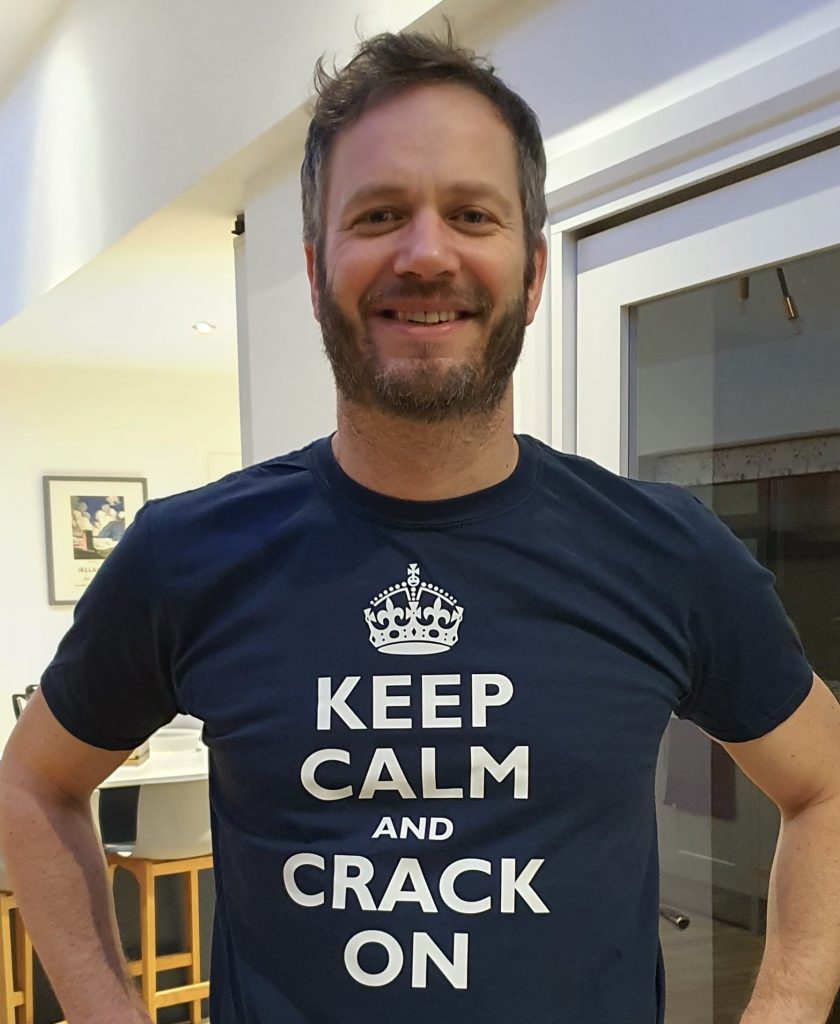December 17, 2021, by School of Medicine
50 at 50: Standing on the shoulders of giants
 Transforming healthcare is not easy. When asked to write this blog I could only think of a few examples where my efforts changed how healthcare is provided. Given that I qualified when doctors still wore white coats and worked 80 hours a week, that might seem like a poor return on all that time and effort. So how can you maximise your chances of finding the holy grail of “impact”?
Transforming healthcare is not easy. When asked to write this blog I could only think of a few examples where my efforts changed how healthcare is provided. Given that I qualified when doctors still wore white coats and worked 80 hours a week, that might seem like a poor return on all that time and effort. So how can you maximise your chances of finding the holy grail of “impact”?
Firstly tenacity is key; if you get upset by being rejected, or by anonymous strangers critiquing your work, with no right of reply and often no feedback, don’t become a clinical academic. Paraphrasing Winston Churchill- ‘success consists of going from failure to failure without loss of enthusiasm’. When I had an idea to improve patients’ experience by replacing arterial with venous blood gas analysis, my enthusiasm wasn’t shared by reviewers and the initial grant application was dismissed. Even when eventually funded, and with great data proving this approach was safe, less painful, and increased efficiency, my first publication was rejected. Having the faith to see what others (wilfully?) won’t can be described as arrogance, or alternatively as prescience; in this case the latter won through and the paper was the most downloaded that year in Thorax, with the message eventually changing patient care throughout the NHS (1). Don’t give up.
Find some giants and stand on their shoulders. Nottingham has a long and proud history of excellence in respiratory research, with luminaries such as Professors Anne Tattersfield, John Britton, and Alan Knox. Learning from these experts and using that learning in your own work can galvanise your career, and hence your ability to transform healthcare. Don’t stand too close for too long though- at some point you need to be your own person. The most important thing Alan ever taught me? Celebrate others success with them. There’s room at the top.
Be curious and embrace life long learning. I’ve generated more research ideas from talking to colleagues at conferences or reading the Economist than from the pages of the Lancet or NEJM. Read, chat, drink coffee, chew the fat. The idea for an app-based healthcare communication system came from a chance conversation between myself and the head of Nottingham hospitals IT department. It’s now widely used through the NHS and has revolutionised how patient care is delivered (2). It would not have happened if we hadn’t been curious to see what each of us understood about how complex hospital environments work.
Always work with people brighter than yourself- my PhD students (clinical and non-clinical) would easily beat me in an intellectual drag race. Listening to their views and answering their questions stimulates deeper insights and a better understanding. At the same time, be wary of those who seem overly confident- as Bertram Russel said- ‘fools and fanatics are so certain of themselves, and wiser people so full of doubt’. This is especially important in research where half the battle is selling an idea, and confidence therefore a pre-requisite.
Lastly, it’s a privilege to be a medical doctor; I have the chance to fight disease and improve lives, one person at a time; being a clinical academic takes that opportunity and amplifies it. What else could I ask for?
By Professor Dominick Shaw, Professor of Respiratory Medicine
No comments yet, fill out a comment to be the first

Leave a Reply